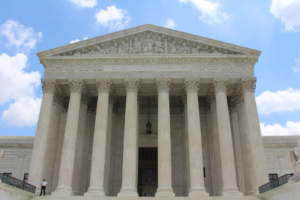More than half of all enforcement actions alleged unregistered securities offering violations related to initial coin offerings, or ICOs.

The United States Securities and Exchange Commission has brought 75 enforcement actions against crypto firms and individuals from July 1, 2013 to Dec. 31, 2020, resulting in $1.77 billion in penalties.
The findings, included in a Cornerstone Research report on SEC cryptocurrency enforcement, reveal that from the 75 actions, 43 were litigated in the US district courts and the other 32 were resolved within the SEC as administrative proceedings. The SEC also issued 19 trading suspensions orders since 2013.
The document shows how most enforcement actions took place from late 2017 onwards, a time when initial coin offerings grew into popularity and Bitcoin rallied to all-time highs at $20,000 as institutional adoption became a reality.
Simona Mola, the report’s author and a senior manager at Cornerstone Research, said: “In the last seven years or so, the SEC has established itself as one of the main regulators policing the cryptocurrency space. As of early March this year, the SEC has settled over 70% of the enforcement actions for more than $1.77 billion in total monetary penalties.”
The most common allegations over the study period involved allegations of fraud (52%) and unregistered securities offerings (69%). Twenty-eight actions (37%) contained allegations of both fraud and unregistered securities offerings.
More than half of all enforcement actions alleged unregistered securities offering violations related to initial coin offerings, or ICOs.
The agency’s ICO enforcement activity heightened in July 2017 as it released the DAO Report of Investigation, where the SEC used the Howey test from the U.S. Supreme Court decision of 1946 to determine whether a token is an investment contract.
Abe Chernin, a Cornerstone Research VP and head of the firm’s consumer finance practice, commented: “ICOs have been a frequent target of SEC enforcement actions, but this may be changing as issuers explore other potential funding sources. While the SEC will continue to focus on fraud, there is an increasing expectation that the new administration develops a clearer regulatory approach and pursue greater interagency coordination to foster innovation in cryptocurrency markets.”
Regarding the need for a clearer regulatory approach, CFTC Commissioner Stump has recently expressed the CFTC’s attention to the lawsuit filed by the SEC against Ripple Labs and its co-founders for having sold more than 14.6 billion XRP tokens worth $1.38 billion in an unregistered offering.
“I am watching the outcome of this case closely because it will help to establish the scope of the SEC’s authority in the digital assets space”, Commissioner Stump said, drawing attention to SEC Commissioner Hester Peirce’s work regarding the application of the “Howey test” to digital assets, which provides the framework for determining whether certain assets are securities.
Also in the context of the SEC’s lack of clarity, XRP holders’ lawyer John E. Deaton said it “doesn’t take an expert to see that plenty is very wrong, very corrupt and very outrageous about the SEC’s lawsuit against Ripple”.
SEC v. Ripple has become the most eyed lawsuit in the digital asset space as it is very likely to establish precedent and clarify the SEC’s scope. The crypto firm has recently “put to shame” an SEC motion to strike Ripple’s lack of due process and fair notice affirmative defense.
